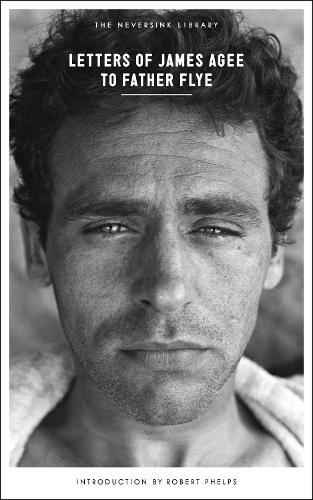
Letters Of James Agee To Father Flye
(Paperback)
Publishing Details
Letters Of James Agee To Father Flye
By (Author) James Agee
Melville House Publishing
Melville House Publishing
15th April 2014
United States
Classifications
General
Non Fiction
818.52
Physical Properties
Paperback
240
Width 127mm, Height 203mm
213g
Description
Oscillating between earnest questions and bawdy jokes, James Agee's decades of letters, compiled by their trusty recipient, Father Flye, explore issues of spiritual belief, literature, family, success and writing. Though most of Father Flye's letters have since been lost, Agee's writing glimmers with a multi-faceted intelligence and lifelong ambition, from the first letter he penned at 15 to the last before his death.
Reviews
Praise for Letters of James Agee to Father Flye
Comparable in importance to Fitzgeralds The Crack-Up and Thomas Wolfes letters as a self portrait of the artist in the modern scene.
The New York Times Book Review
A human document of searing honesty and naked beauty.
Atlanta Constitution
The stuff of life . . . Extraordinary letters which in their revelation of the hidden springs of genius constitute a major work of art.
Pittsburg Press
Extraordinary letters . . . [James Agee] was what used to be called an original . . . able to think in general terms without making a fool of himself, therein differing from most American creative writers of this century.
Dwight Macdonald
He simply preferred conversation to composition. The private game of translating life into language, or fitting words to things, did not sufficiently fascinate him. His eloquence naturally dispersed itself in spurts of interest and jets of opinion. In these letters, the extended, serious projects he wishes he could get to . . . have about them the grandiose, gassy quality of talk.
John Updike, The New Republic
From a reading of the letters Agee emerges as a warm human being with a deep commitment to life as a person and as a writer. It is a rewarding experience to make his acquaintance.
Kirkus Reviews
Praise for James Agee and Let Us Now Praise Famous Men
A book of wondersan untamable American classic in the same line as Leaves of Grass and Moby-Dick.
David Denby, The New Yorker
Let Us Now Praise Famous Men is . . . a classic work, an exercise in pure, declarative humanism. It will read true forever.
David Simon, creator of The Wire
The most realistic and most important moral effort of our American generation.
Lionel Trilling
In my opinion, his column is the most remarkable event in American journalism . . . What he says is of such profound interest, expressed with such extraordinary wit and felicity, and so transcends its ostensibleto me, rather unimportantsubject, that his articles belong in that very select classthe music critiques of Berlioz and Shaw are the only other members I knowof newspaper work which has permanent literary value.
W. H. Auden
[James Agees] work continues to feel so vital just because it remains so nakedly vulnerable, so provisional, so utterly lacking in that subtle artistic poison of self-confident complacency . . . He honestly does seem something close to the James Dean of American literature.
Michael Dirda, The Washington Post
Author Bio
James Agee (19091955) was born in Knoxville, Tennessee. He graduated from Harvard in 1932 and was hired as a staff writer at Henry Luces Fortune magazine. His collection of poetry, Permit Me Voyage, won the Yale Series of Younger Poets competition and was published in 1934. Though he hoped to dedicate himself full-time to poetry and fiction, Agee would remain a Time, Inc., writer for fourteen years, winning high praise from Luce himself, who considered Agees Fortune essay on the Tennessee Valley Authority to be the best the magazine ever published. (For his part, Agee fantasized about shooting Luce.) His book about Alabama tenant farmers during the Depression, Let Us Now Praise Famous Men, a collaboration with the photographer Walker Evans, appeared in 1941. The book was a commercial and critical failure, selling just six hundred copies in its first year of publication. Agee was later renowned for his film criticism, which appeared regularly in The Nation and Time. He cowrote the screenplays for The African Queen and The Night of the Hunter, as well as a screenplay for Charlie Chaplin, though it was never produced. Agee died of a heart attack in a New York City taxicab at forty-five. Two years later, his novel, A Death in the Family, was published and won the Pulitzer Prize. Let Us Now Praise Famous Men was republished in 1960 and hailed, on its rerelease, as an American classic. In 2013, Cotton Tenants: Three Families, a rediscovered magazine article about the Alabama tenant families, was published to critical acclaim.
James Harold Flye (18841985) was an Episcopal priest and teacher. He spent thirty-six years at St. Andrews school in Tennessee, and later served as a pastor at St. Lukes in New York.
Robert Phelps (19221989) was an editor, author, and translator. He was a cofounder of Grove Press and edited works by Colette and Jean Cocteau.
